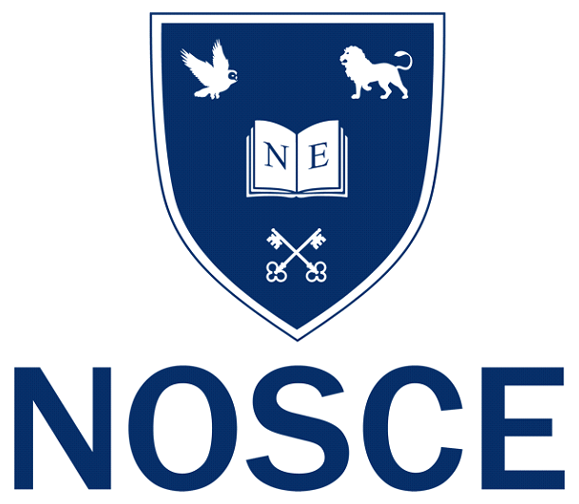Scholarships & Bursaries
Bursaries & Scholarships
Private schooling these days is out of the financial reach of most people – particularly those with more than one child to consider. Fees have rocketed in relation to salaries and inflation, and families from the professional and upper classes, whose children would have had traditionally had a public school education, are now looking for cheaper alternatives. In the past, particularly bright children were able to have their schooling paid for by the Direct Grant system and then by Assisted Places but both schemes are now defunct. So where can you go for help now?
Many private schools are embarking on campaigns to raise more funds for means-tested bursaries. These days, almost one-third of pupils educated in the private sector receive some form of financial assistance in the form of a scholarship or bursary.
Good schools want able children – whether they are academic superstars, winners on the sports fields or masters of art, music or drama. They raise schools’ results, add silverware to their trophy cabinets and lustre to their reputation. So many schools offer financial assistance to attract the brightest and most talented – and most private schools are run as charitable foundations with obligations to extend their provision to a limited number of children who merit places but whose parents cannot afford the fees.

Scholarships: how they work
Many independent secondary schools offer scholarships to attract talented students. These scholarships are competitive and typically offer more prestige than financial reward, often worth only a small percentage of tuition fees or nominal amounts like vouchers for art supplies. However, scholars may receive special privileges, extra coaching, and additional opportunities during their time at the school. Older, more prestigious schools like Eton and Harrow have larger scholarship funds, sometimes serving as bursaries for deserving students from less privileged backgrounds. Newer schools may offer smaller scholarships with fewer benefits.
Can schools award scholarships and bursaries together?
It is possible to hold both a scholarship and a bursary – and many able children do. This means that you gain your place at the school on the strength of your abilities and the school makes it possible for you to come by giving you a bursary.


Prep school scholarships: what’s available?
Scholarships are rare at the prep school level, except in choir schools. These scholarships seldom cover full fees and require significant effort. They can lead to music scholarships at top public schools. Some prep schools offer scholarships or exhibitions for Year 7 students, often to internal candidates who have shown consistent merit. Others provide bursaries for state school students entering in Year 6 or 7 to prepare for common entrance.
AS FEATURED IN








Internal scholarships
If you’ve already got your foot in the door and are swallowing the termly fee bill through gritted teeth, keep your eyes open for internal scholarship or bursary opportunities which occur at various stages, mainly sixth form.
Bursaries
Bursaries help talented kids from less wealthy families attend private schools. They can cover up to 100 percent of fees and more. Bursaries are means tested, reviewing the family’s financial situation annually. Schools consider income, assets, outgoings, and other financial commitments. Each school has different criteria, so it’s worth inquiring about bursarial assistance.
How do you get a scholarship or bursary?
The most important thing is to be realistic about your child and your financial circumstances. If your child is doing nicely, about average in his state primary, enjoying his sport or music but not exactly a Marcus Rashford or a Sheku Kanneh-Mason, then he is probably not destined for a scholarship. If you have a semi in London and a cottage in Dorset, keep a boat and a string of horses and ski in Wengen every winter, you are unlikely to be taken seriously as a candidate for a bursary – however bright your child. However, if your child was reading at 3, knew his tables at 4 and devoured science books whole at 7, then you may have a potential scholar on your hands.
So, if your child is able, if you are not rich and you want an independent education for her, then inform yourself. Find out (we can help you) which schools in your area offer fee assistance and what the criteria are. Remember that schools make their own rules and set their own timetables.
- Be on time and be organised. If your child gets the offer of a place and you then decide to ask about bursaries, it may well be too late.
- Be scrupulously honest. Answer all the questions – whether about your child’s tutoring (if any), whether the school is your first choice, your income etc – without reserve.
- Don’t pressure your child. Your child wants to succeed. He wants to please you and would love to get a place at Brainbox Towers, but no child does well at exams or interviews if they are anxious. Always approach it as a ‘let’s give it a try’ exercise.
- No school owes you a bursary. You may think your child is brilliant and a constant delight. You may know he would flourish at this or that school or that the school would be thrilled to have her if they knew how wonderful she is. But arguing with the school, nagging the school or threatening the school will merely make them determined not to take your child. No school willingly takes on a child with an annoying parent. Do not lose your sense of proportion.
